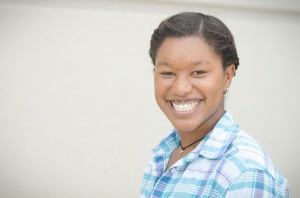In the medical world, there aren’t very many secrets. In fact, the whole point of going to the doctor is to find out clean and clear what’s wrong and how to fix it. That being said, there is an abundance of information that doctors know that we don’t.
I wanted to know some facts. The body is such a complex system, and there are so many noteworthy elements within it that we can learn about. I spoke to a few local specialists to find out what they know about the body that I might not need to know but just might want to.
First, I spoke with neurosurgeon Dr. Rafael Allende, father of senior Emma Allende and freshman Lauren Allende. He is a neurologist who specializes in treating spinal disorders, and he filled me in on the oddities related to the spinal cord.
“The spine degenerates or wears down with age, which results in loss of height over time,” he said.
“That is why we become shorter and less flexible as we grow older.” So, the joke that we “grow down” after hitting retirement actually holds quite a bit of truth.
Dr. Rai Gupta, father of 8th grader Aavni Gupta and alum Aakash Gupta ’13 is a plastic surgeon. What sets him apart, however, is his special training in hand reconstruction. The hand has 29 major and minor bones, more than 123 named ligaments, and 48 named nerves!
“[The] hand is a special organ. It has so many structures and tendons and sensations,” said Gupta. “That is why [it] is a separate specialty.”
It turns out the hand isn’t the only body part that’s more than meets the eye. In fact, the eye itself is quite deceptive in its visible simplicity. Dr. James Jochum, father of eighth grader Parker Jochum, is an ophthalmologist, specializing in the surgical and medical care of eye diseases. He works hard removing blind and painful eyes, taking out eyelid cancers, conducting laser procedures and much more. He covers a lot, but that’s because in the eye there is a lot to cover.
“Each eye’s optic nerve contains approximately 1.2 million nerves that connect our retina to the visual pathways in the brain,” he said. This makes surgery very technical, and it prevents doctors’ ability to transplant the entire eye. Jochum says there is still hope.
“We do have early retina electrical implants which can give some very limited vision to some patients with various forms of retina cell loss,” he said. “Much research in retina implant technology is ongoing, and the future will hold improvements.” That is the beauty of medicine. There is always research to be done, and with the ongoing growth of technology the possibilities are endless.
With new abilities in science come new oddities outside of the doctors’ office too. Dr. John Altomare, father to senior Kyle Altomare, freshman Bryce Altomare, and eighth grader Chase Altomare, has certainly witnessed these abnormalities. He is a dentist, and he gets to work with one of the most noticeable parts of the body.
“Your smile is one of the first things people notice and is a reflection of you and your personality,” he said. “A happy smile can set you apart from others, be an indicator of your overall health and give you a leg up on a successful life.”
Of course, the mouth isn’t all joy and giggles. Altomare has dealt with the worst of the worst when it comes to mouths. However, the strangest thing he’s ever encountered surpasses all rotting teeth and gum diseases. Some of his patients have tattoos inside their mouths! Judging by the pain I’ve felt at the dentist’s office when I’m there for a simple checkup, I can’t imagine how much the insertion of a tattoo inside the mouth must hurt.
It will be years before everything about the human body is known, and even then we will continue to evolve as a species. Dr. Wassim Ahmar, cardiologist and father of senior Sareen Ahmar and freshman Faraaz Ahmar, says that patients aren’t the only ones learning when doctor visits take place.
“We continue to learn every day. I learn from my patients and from the literature and the scientific research that continues to evolve,” he said. As long as we keep asking questions, we can find out new things every day about the mysterious puzzle that is the human body.




